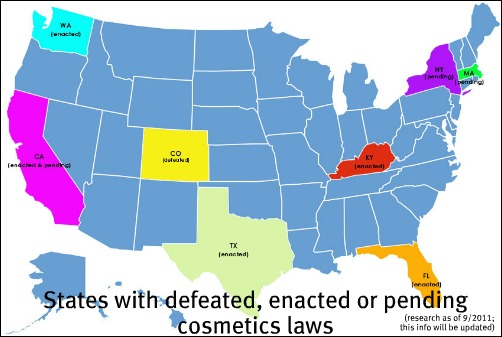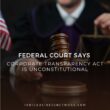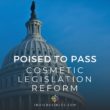In this January 2011 post, I told you about President Obama's Executive Order requiring that federal agencies ensure that regulations protect safety, health and environment while promoting economic growth. Specifically, the President said his intention was to seek more affordable, less intrusive means to protect the public interest, giving careful consideration to benefits and costs.

This is nothing new. From a policy perspective, and a common sense one, there is no need to pass news laws before conducting a cost-benefit analysis. There are always projected benefits, and there are always projected costs. If the costs outweigh the benefits, a proposed law should not pass.
As a small business advocate, this is the kind of position I have pursued for years, especially where small cosmetics companies like my IBN members are concerned.
Last week, as reported by the Wall Street Journal, the President took a step that shows he is serious about protecting the public interest without unnecessarily over-regulating businesses, when, citing the economy, he asked the Environmental Protection Agency to withdraw new rules that would have tightened air-quality standards and cost millions of jobs.
As we look to September 13 hearings in Massachusetts on proposed cosmetics laws, and to the pending Safe Cosmetics Act of 2011, both of which are backed by environmental groups like the Environmental Working Group and the Campaign For Safe Cosmetics, the President's move is particularly significant.
It Starts With the Law
As I said in my January post, there is no new regulation if there is no new law. Therefore, when it comes to pending bills, we have an opportunity to conduct a cost-benefit analysis before any adverse impact. This is a clear advantage. It is always better to assess the impact of legal and policy changes on the public and business before the change is made. Failing to do so risks serious unintended and unfair consequences on our nation's small business owners, as happened with the Consumer Product Safety Improvement Act of 2008.
The Beginnings of the Patchwork Quilt: The Safe Cosmetics Act of 2011, State Laws, and the Pending Massachusetts Bills
– Cosmetics are now regulated by Food, Drug & Cosmetic Act the US Federal government, and enforced by the Food & Drug Administration.
– Cosmetics are also regulated in specific (and different) ways in the State of Florida, enforced by the Florida Department of Health.
– Cosmetics (and other products) designed specifically for children are regulated in specific (and different) ways in the State of Washington, enforced by the Washington Department of Ecology.
– Cosmetics are also regulated in specific (and different) ways in the State of California (PDF), enforced by the California Department of Public Health.
– Cosmetics are regulated in specific (and different) ways by the Kentucky Food, Drug and Cosmetic Act.
– Cosmetics are regulated in specific (and different) ways by the Texas Food, Drug and Cosmetic Act, enforced by the Texas Department of State Health Services.
– Cosmetics were almost regulated in specific (and different) ways in Colorado in 2010, but that bill didn't pass.
– After next week, cosmetics could be regulated in specific (and different) ways in the the Commonwealth of Massachusetts by either the Act Relative to Safe Cosmetics or the Massachusetts Act Relative to Safe Cosmetics in the Commonwealth of Massachusetts, both of which are summarized here.
– And thanks to this blog post by Kayla Fioravanti of Essential Wholesale, we now know that there are multiple new bills pending in California that would regulate cosmetics even more.
And there's more.
– The New York Safe Cosmetics Act of 2011 is now pending.
And surely more that I don't know about yet or haven't had time to dive into enough to include in a blog post. (Give me a minute …)
Calgon (no pun), take me away!!
Speaking of “Conflict …”
Should we not stop this madness before it becomes unmanageable?
There is no reason to pass news laws in Massachusetts (or any other state) to regulate a cosmetic when there is now pending in the United States Congress a bill that would regulate the exact same cosmetic, and when companies already must comply with or monitor at least seven other states that either have laws or are likely to consider new ones.
Can you imagine having to learn about and then comply with federal law, Massachusetts law, and potentially 49 other state laws just to sell the same tube of lip balm? And to also have to monitor this legal soup to make sure that you comply with all of those laws as they change through the years?
I can't.
Question: What do you think?



